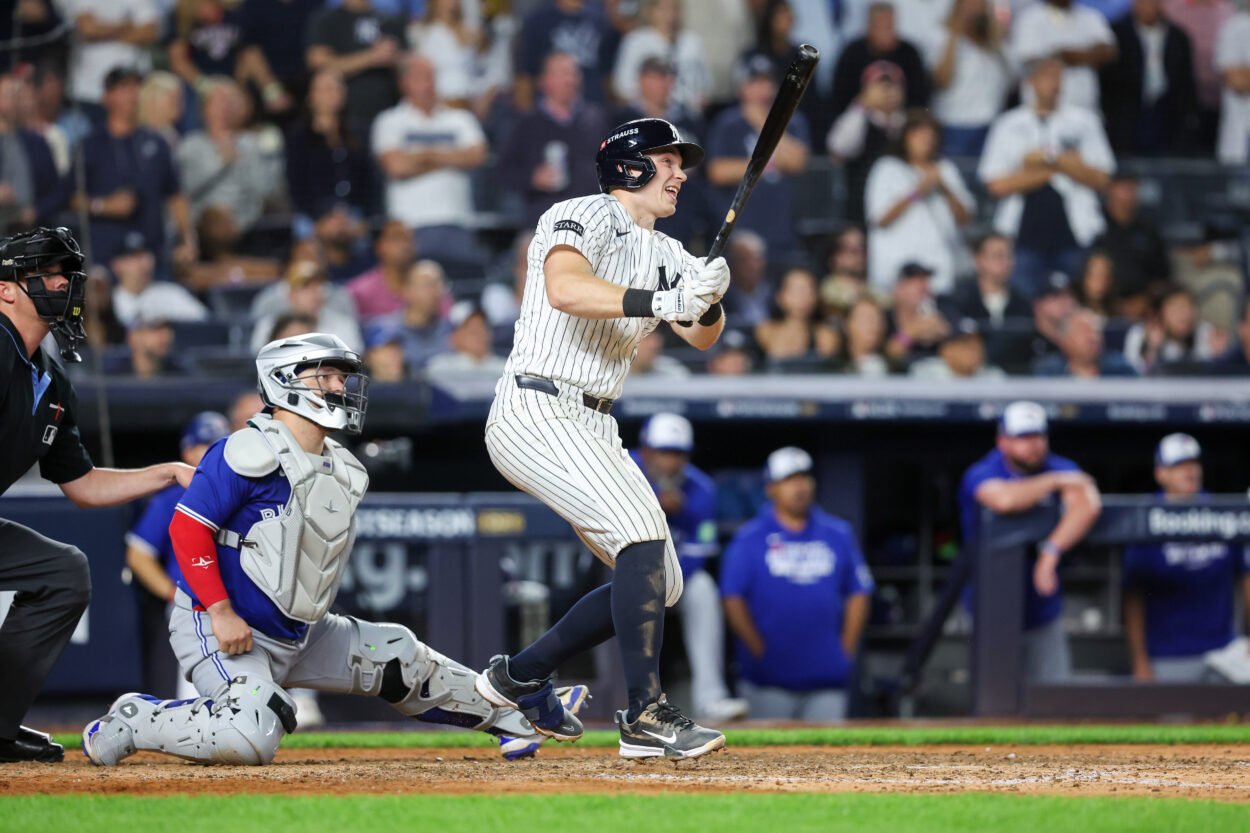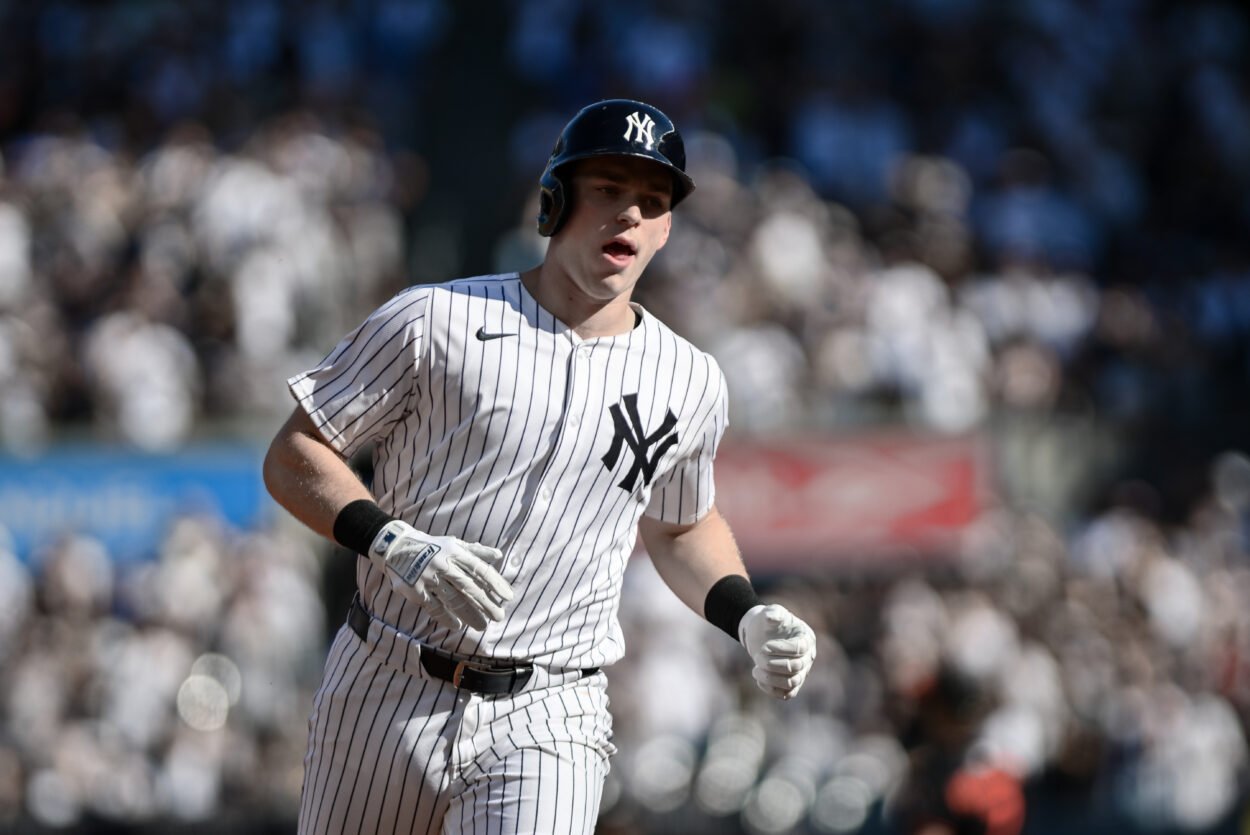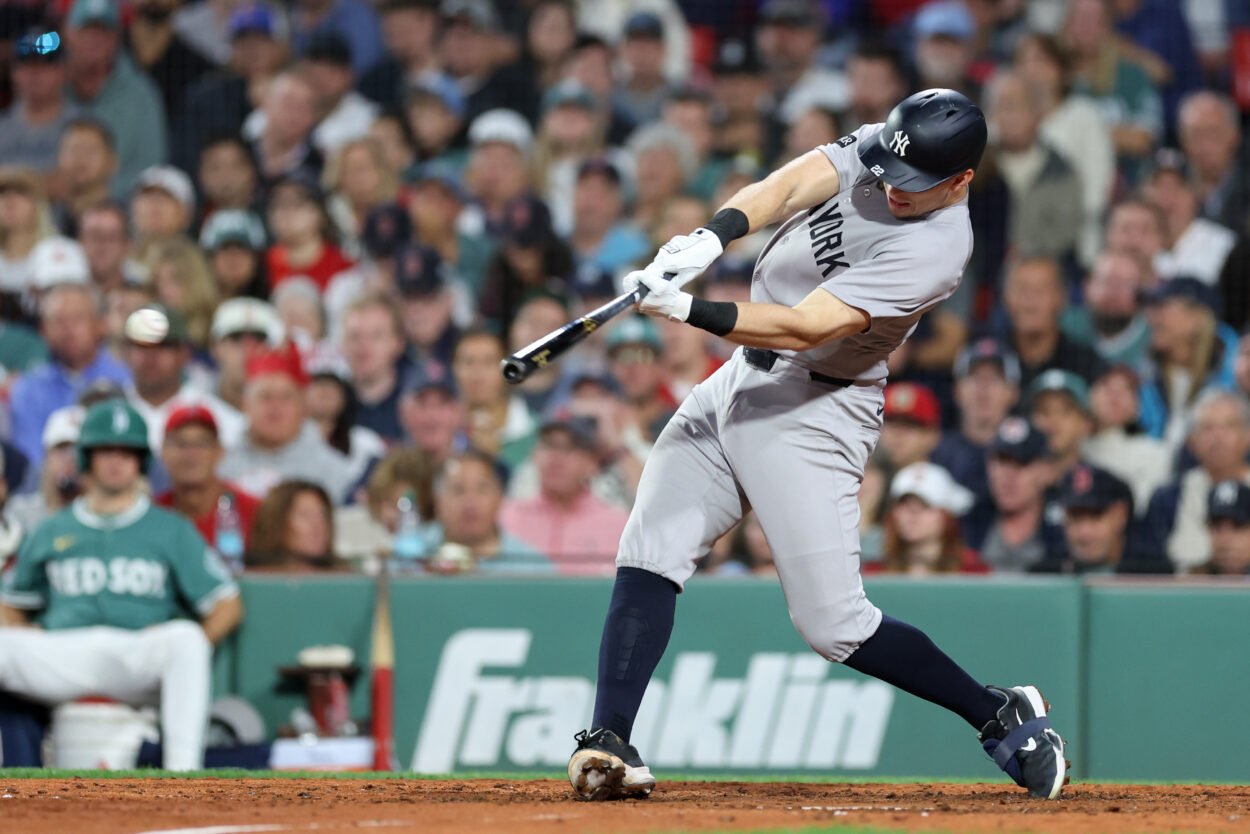
When MLB announced the American League Silver Slugger winners on Friday, there was plenty for the New York Yankees to celebrate. Aaron Judge added a fifth Silver Slugger to his already jam-packed trophy case, while Jazz Chisholm Jr. earned his first, solidifying his breakout season in pinstripes. To top it off, the Yankees were recognized with the team-wide award, a testament to the club’s fearsome lineup that was, by nearly every measure, the most dangerous in baseball.
Still, the moment wasn’t entirely sweet. One Yankee — rookie Ben Rice — had every right to feel overlooked.
Ben Rice’s Case Was Stronger Than Voters Realize
Cody Bellinger missing out in the outfield made sense. The competition was stacked with Byron Buxton, Riley Greene, and Judge all putting up superior numbers. But the real head-scratcher came in the utility category, where Detroit’s Zach McKinstry took home the hardware over Rice.

By the award’s own definition, the utility player must have appeared in 100 or more games with at least 20 games at two or more defensive positions, excluding designated hitter. Rice checked those boxes easily, logging 36 games behind the plate (26 starts) and 50 at first base (46 starts). For a young player who split time between two demanding spots and still produced at an elite level, that’s no small feat.
McKinstry, of course, earned praise for his defensive versatility — he appeared at nearly every position except catcher and center field. But when it comes to the Silver Slugger, defense isn’t supposed to matter. The award is about offensive excellence, and the numbers don’t lie.
The Numbers Tell a Different Story
According to Yankees Muse, McKinstry barely edged Rice in batting average — by just .004 points. Beyond that, Rice dominated every other major offensive category. He outpaced McKinstry in home runs, runs, RBI, walk rate, strikeout rate, isolated power, on-base percentage, slugging, OPS, wOBA, xwOBA, and wRC+.
Those metrics aren’t just fancy analytics; they’re a snapshot of a hitter’s true impact. Rice’s 26 home runs and 133 wRC+ painted the picture of a polished, patient hitter capable of changing games with one swing. McKinstry, meanwhile, finished with a respectable 12 homers and a 114 wRC+. Solid, sure — but nowhere near the same offensive class.
A Rookie Season Worth Remembering
For the Yankees, Rice’s emergence was one of the season’s most encouraging storylines. He stabilized first base, added length to an already loaded lineup, and carried himself like a player who belonged. His bat was consistent, his approach mature. For long stretches, he looked less like a rookie and more like a cornerstone in the making.

The Silver Slugger snub doesn’t erase what he accomplished, but it does highlight a flaw in the voting process. If the criteria are meant to reward offensive excellence among qualified utility players, Rice’s numbers should have spoken loudly enough. Instead, it seems his defensive profile — or perhaps his relative anonymity — worked against him.
The Bigger Picture for the Yankees
Even with the slight, the Yankees walked away with plenty of validation. Judge reminded everyone why he’s still one of baseball’s premier sluggers, Chisholm delivered on the promise that made him such an exciting acquisition in 2024, and the team award confirmed what the rest of the league already knew: the Yankees’ offense was a juggernaut.
Still, it’s hard not to wonder what might have been if voters had looked a little closer at the numbers. Ben Rice had the kind of season that deserved recognition — maybe not just for what he did, but for what it said about the future in the Bronx.
The Yankees will take their trophies and move on. Rice will take the snub personally. And if history has shown anything, it’s that great hitters don’t forget moments like this.
